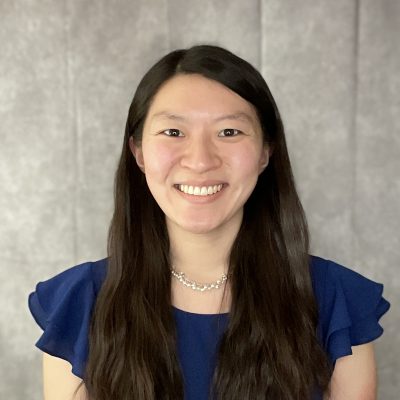Student Spotlight: Sonia Su

February 6, 2023
Sonia Su is a doctoral student in food science and technology from Cary, North Carolina. She earned bachelor’s of science degrees in food science and bioprocessing science from North Carolina State University and now studies bioremediation at Cornell under the guidance of Julie Goddard.
What is your area of research and why is it important?
My research falls into the area of bioremediation which is the use of microorganisms or other forms of life to break down or consume environmental pollutants. This research is growing increasingly important as the world gets more and more polluted. In this field of research the aim is to lessen pollutants that already exist or degrade them into less environmentally harmful materials. There are so many ways to approach bioremediation and I get to work with enzymes in my research group to achieve some of these goals.
What are the larger implications of this research?
Larger implications of bioremediation result in a less polluted world for now and the future. This could be achieved in a few different ways. One way would be finding uses for a waste stream, something like acid whey from yogurt production being converted into economically profitable products. Another way would be to physically remove the pollutants that current exist like organic pollutants in our groundwater or soil. We have to find a way to sustain our growing population on this earth.
Why did you decide to become a mentor with the MAC Mentoring Program?
I decided to be a MAC mentor because the program helped me a lot in my first year of graduate school. My mentors answered a lot of the questions I had when I came into school. The program in general reminded me that other students also struggle coming into graduate school. Finding a community to support and celebrate you is one of the greatest resources for graduate school, and MAC mentoring is an amazing place to start. It is such a loving environment that I wanted to help support more incoming graduate students as a mentor.
Why is it important for students to participate in peer mentoring programs?
I think it is incredibly important for students to participate in peer mentoring programs because of the strong supportive community they can build. Peer mentoring programs like MAC create small group environments for mentees to ask any and all questions they may have without feeling judgement. The larger group events allow mentees to learn from the greater group and create a strong community across the campus. Peer mentoring programs are a great way to also remind students that everyone is working through graduate school together and we are here to support everyone to achieve their goals!
What are your hobbies or interests outside of your research or scholarship?
Outside of research I like to find ways to relax by hiking and being out in nature. I am excited to learn to ski and be able to enjoy the outdoors in more seasons! I also enjoy baking and reading to relax.
Why did you choose Cornell to pursue your degree?
One of the reasons I chose Cornell is because of the location and the amazing nature that surrounds the campus. Cornell also has a world-class food science research program and it is exciting to be a part of the groundbreaking research that is happening. I had been able to meet my research team before choosing Cornell and the atmosphere of the lab felt like the right place to be!
